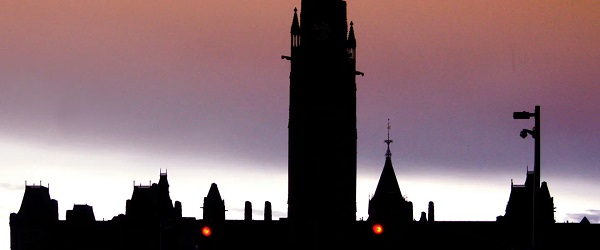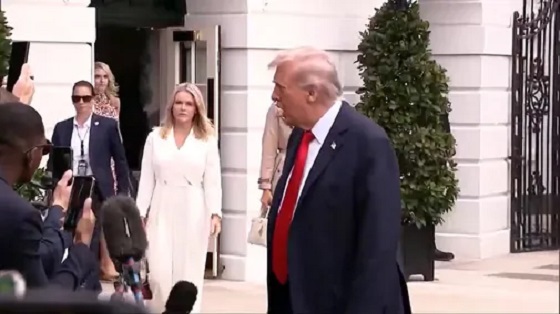Censorship Industrial Complex
UK’s top cop wants to ‘stop policing tweets’: report
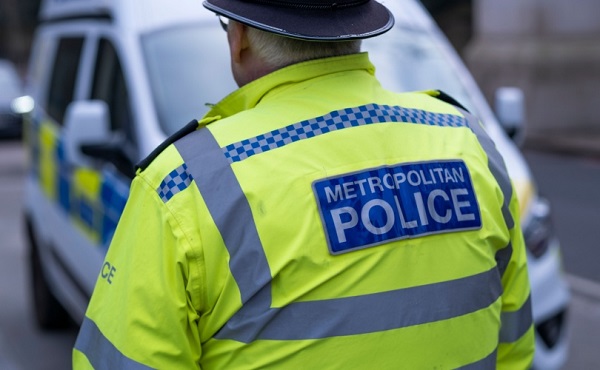
From LifeSiteNews
By Frank Wright
‘I don’t believe we should be policing toxic culture wars debates,’ said Sir Mark Rowley, chief of the London Metropolitan Police.
In a remarkable shift, Britain’s most senior police officer is to recommend changes to the law which could allow police to “stop policing tweets” within weeks.
Sir Mark Rowley, chief of London’s Metropolitan Police, said he will approach the Home Secretary with proposals which could see police return to policing real-life crime.
Sources close to Rowley told the UK’s Daily Telegraph:
He wants Shabana Mahmood, the new Home Secretary, to change the rules so police officers are not required to record or investigate complaints when there is no evidence the suspect intended real-world harm.
The change would be a remarkable departure from the crackdown on “non-crime hate incidents,” which have seen British people given sentences of several years for remarks made online.
Rowley’s move to change the law comes alongside the UK Labour government’s proposal to introduce digital ID – which could tie access to bank accounts and work to online speech.
Return to common sense policing?
The Telegraph’s source said Rowley “is proposing a shake-up of legislation that would give officers greater discretion to use ‘common sense’ when deciding whether to record and investigate complaints about comments on social media.”
The proposed change follows the arrest of comedy writer Graham Linehan, prompting the Metropolitan Police Chief to respond.
Responding to Linehan’s arrest, Rowley said on September 3 that a return to common sense was needed as a series of high-profile arrests over “non-crime hate incidents” was undermining public trust in the police.
He said the policies of successive governments had left the police in an “impossible position” over hate speech laws.
“I don’t believe we should be policing toxic culture wars debates,” Rowley added in a September 9 report, before claiming the police were not responsible for their actions.
“[O]fficers are currently in an impossible position. I have offered to provide suggestions to the Home Office on where the law and policy should be clarified.”
Telegraph journalist Allison Pearson, who was doorstepped by police last November for a tweet described as a “non-crime hate incident,” responded on September 9 by saying Rowley’s step towards defending free speech was “disingenuous” at best.
“At the risk of being arrested,” Pearson said, “I suggest Met chief Mark Rowley is a total muppet.”
Commenting on the recent arrest of comedian Graham Linehan for online speech, she added, “It is disingenuous in the extreme for the commissioner to say officers’ hands are tied in cases like that of Graham Linehan.”
Pearson explains that Linehan, famous for writing sitcoms, was arrested by five armed police after a “notorious trans activist” reported his tweets to police.
Rowley’s claim is that guidelines to police compel them to treat such appeals as crime reports, leaving no room for discretion.
Pearson then refers to the many real-life crimes to which British police do not routinely respond – even over decades:
It’s perfectly clear that the police have discretion to ignore complaints, even crimes, if they want to. Let’s see now:
Phone theft – ignored.
Shoplifting – essentially legal.
Carjacking – we’ll send you a crime number.
Burglaries – help yourself, lads!
Sexual harassment, child gang rape – er, sorry, cultural sensitivities.
Pearson concludes that the police chief is himself being dishonest – at best – in saying that speech crime laws tie the hands of officers.
For Sir Mark to claim that his officers were unable to use their common sense and ignore a complaint from a notorious trans activist about [Linehan] is to insult the public’s intelligence.
Baronness Winterbourne of the House of Lords responded, recommending that “[i]nstead of blaming Parliament for your officers’ inability to think for themselves intelligently, perhaps you might firmly tell them, please, to stop being stupid.”
En désespoir pic.twitter.com/Dm7XViTZ8s
— Emma Harriet Nicholson (@Baroness_Nichol) September 5, 2025
As the latest Telegraph report shows, government advice to police already exists – which has not prevented the policing of so-called “non-crime hate incidents.”
More than 13,200 non-crime hate incidents were recorded by police in the 12 months to June 2024, a similar number to the previous year, despite new guidelines requiring police to investigate only ‘when it is absolutely necessary and proportionate and not simply because someone is offended.’
Rowley was also recorded on a UK radio show defending the officers who carried out Linehan’s arrest.
Graham Linehan’s case is but one of many in which British people have been prosecuted for online speech. As the Free Speech Union reported in April 2025, new data showed that over 12,000 people in Britain are arrested for speech crimes every year.
Hitchens: Disband the police?
Peter Hitchens, a veteran conservative commentator and staunch Christian, spoke out on GB News – calling for the British police to be completely abolished and replaced.
Peter Hitchens calls for the police to be disbanded and rebuilt from scratch, accusing them of becoming 'a sinister menace to freedom of speech'.
'They’re not responsible for crime anymore. They’re a politically correct body who think they’re policing thought.' pic.twitter.com/EylPbMyviP
— GB News (@GBNEWS) September 10, 2025
Hitchens, a devout Christian, said the British police should be “disbanded” as they have become a “sinister menace to the freedom of speech.”
“They’re not responsible for crime anymore,” Hitchens explained. “They’re a politically correct body who think they’re policing thought.”
He told GB News’ Michelle Dewberry that “the police don’t believe they should be doing what we think they should be doing. They do believe they should be arresting people for incorrect tweets. The only solution is to disband them and start again.”
Elsewhere Hitchens argued this was no novel development, saying this “new style of policing” went back 20 years.
Two-tier Keir Starmer
The embattled Prime Minister Keir Starmer has long been accused of “two-tier” policing in cracking down on “far-right thugs” who commit online speech crimes.
As the murder of Charlie Kirk focuses attention on the toxic speech of the left, Britain’s justice system sees no evil when left-wingers call for the collective murder of people on the right.
Whilst former Conservative councilor Lucy Connolly received a 31-month sentence for an angry tweet about illegal migrants, a councilor for Starmer’s own Labour Party was found not guilty of incitement to violence after demanding that everyone he saw as “far right” be murdered.
Ricky Jones was declared innocent after publicly calling for his comrades to “cut the throats” of the so-called “disgusting Nazi fascists” who were protesting over the murder of children by a man of migrant heritage. Three girls were killed in Southport by a Rwandan youth last July. After stabbing the nine children in a frenzied assault, Axel Rudakubana told police, “It’s a good thing those children are dead.”
When angry protests broke out at the murders, Jones responded on video, saying of the so-called “far-right” protesters: “We need to cut all their throats and get rid of them all.”
Jones was freed, Connolly was jailed.
Talking of calls for violence,
Violent extremist RICKY JONES was released on bail until his trial in January despite the severity of his crime.
Protesters have been jailed for very minor crimes yet their vile ex Labour Party councillor gets totally different treatment.
This… https://t.co/XW4Oo2lB4R pic.twitter.com/7C2PtZL9kW
— Antifa Public Watch official (@UnmaskedAntifa) October 23, 2024
Despite the obvious dangers in preferring the policing of speech to genuine threats and crimes, there seems to be no cause for concern from the point of view of Britain’s prime minister.
During Wednesday afternoon’s questions, Sir Keir Starmer was asked whether he would commit to revising speech laws to “ensure legitimate free expression is protected.”
Starmer replied with a stock response: “I’ve been clear throughout, we must ensure the police focus on the most serious issues and the issues that matter most to our constituencies and all communities.”
He ended by saying he was proud of Britain’s long history of free speech, which he said he would always protect.
“And that includes tackling issues like antisocial behavior, knife crime and violence. And we have a long history of free speech in this country. I’m very proud of that, and I will always defend it.”
Banks
Debanking Is Real, And It’s Coming For You
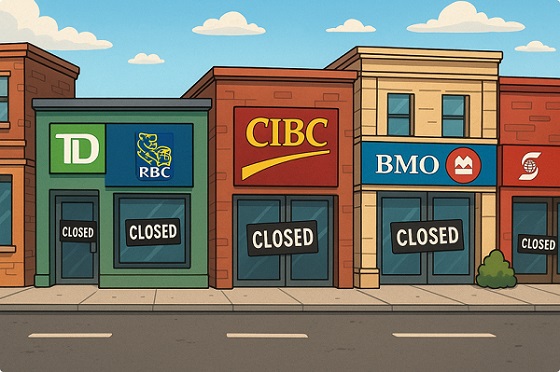
From the Frontier Centre for Public Policy
Marco Navarro-Genie warns that debanking is turning into Ottawa’s weapon of choice to silence dissent, and only the provinces can step in to protect Canadians.
Disagree with the establishment and you risk losing your bank account
What looked like a narrow, post-convoy overreach has morphed into something much broader—and far more disturbing. Debanking isn’t a policy misfire. It’s turning into a systemic method of silencing dissent—not just in Canada, but across the Western world.
Across Canada, the U.S. and the U.K., people are being cut off from basic financial services not because they’ve broken any laws, but because they hold views or support causes the establishment disfavors. When I contacted Eva Chipiuk after RBC quietly shut down her account, she confirmed what others had only whispered: this is happening to a lot of people.
This abusive form of financial blacklisting is deep, deliberate and dangerous. In the U.K., Nigel Farage, leader of Reform UK and no stranger to controversy, was debanked under the fig leaf of financial justification. Internal memos later revealed the real reason: he was deemed a reputational risk. Cue the backlash, and by 2025, the bank was forced into a settlement complete with an apology and compensation. But the message had already been sent.
That message didn’t stay confined to Britain. And let’s not pretend it’s just private institutions playing favourites. Even in Alberta—where one might hope for a little more institutional backbone—Tamara Lich was denied an appointment to open an account at ATB Financial. That’s Alberta’s own Crown bank. If you think provincial ownership protects citizens from political interference, think again.
Fortunately, not every institution has lost its nerve. Bow Valley Credit Union, a smaller but principled operation, has taken a clear stance: it won’t debank Albertans over their political views or affiliations. In an era of bureaucratic cowardice, Bow Valley is acting like a credit union should: protective of its members and refreshingly unapologetic about it.
South of the border, things are shifting. On Aug. 7, 2025, U.S. President Donald Trump signed an executive order titled “Guaranteeing Fair Banking for All Americans.” The order prohibits financial institutions from denying service based on political affiliation, religion or other lawful activity. It also instructs U.S. regulators to scrap the squishy concept of “reputational risk”—the bureaucratic smoke screen used to justify debanking—and mandates a review of past decisions. Cases involving ideological bias must now be referred to the Department of Justice.
This isn’t just paperwork. It’s a blunt declaration: access to banking is a civil right. From now on, in the U.S., politically motivated debanking comes with consequences.
Of course, it’s not perfect. Critics were quick to notice that the order conveniently omits platforms like PayPal and other payment processors—companies that have been quietly normalizing debanking for over a decade. These are the folks who love vague “acceptable use” policies and ideological red lines that shift with the political winds. Their absence from the order raises more than a few eyebrows.
And the same goes for another set of financial gatekeepers hiding in plain sight. Credit card networks like Visa, American Express and Mastercard have become powerful, unaccountable referees, denying service to individuals and organizations labelled “controversial” for reasons that often boil down to politics.
If these players aren’t explicitly reined in, banks might play by the new rules while the rest of the financial ecosystem keeps enforcing ideological conformity by other means.
If access to money is a civil right, then that right must be protected across the entire payments system—not just at your local branch.
While the U.S. is attempting to shield its citizens from ideological discrimination, there is a noticeable silence in Canada. Not a word of concern from the government benches—or the opposition. The political class is united, apparently, in its indifference.
If Ottawa won’t act, provinces must. That makes things especially urgent for Alberta and Saskatchewan. These are the provinces where dissent from Ottawa’s policies is most common—and where citizens are most likely to face politically motivated financial retaliation.
But they’re not powerless. Both provinces boast robust credit union systems. Alberta even owns ATB Financial, a Crown bank originally created to protect Albertans from central Canadian interference. But ownership without political will is just branding.
If Alberta and Saskatchewan are serious about defending civil liberties, they should act now. They can legislate protections that prohibit financial blacklisting based on political affiliation or lawful advocacy. They can require due process before any account is frozen. They can strip “reputational risk” from the rulebooks and make it clear to Ottawa: using banks to punish dissenters won’t fly here.
Because once governments—or corporations doing their bidding—can cut off your access to money for holding the wrong opinion, democracy isn’t just threatened.
It’s already broken.
Marco Navarro-Genie is vice-president of research at the Frontier Centre for Public Policy and co-author, with Barry Cooper, of Canada’s COVID: The Story of a Pandemic Moral Panic (2023).
Censorship Industrial Complex
Freedom of speech under threat on university campuses in Canada

From the Fraser Institute
By Michael Zwaagstra and Matthew D. Mitchell
Obviously, when students feel that their grades are at risk, they will be far less likely to express their genuine opinions or even ask questions during class discussions. Not only does this make classes less interesting, it also undermines the entire purpose of a university education.
Universities should be places where all ideas are welcomed and explored. In many Canadian university classrooms, however, only the “correct” viewpoint is heard.
According to a new survey (conducted by Leger and published by the Fraser Institute) of 1,200 Canadian university students and recent graduates, politically left-of-centre students were far more likely than their right-of-centre classmates to report that their views were welcomed and encouraged in class.
For example, 83 per cent of right-leaning students believe that professors advocate a left-of-centre view—and 45 per cent of left-leaning students agree with them.
Forty-two per cent of right-leaning students say they experienced a university classroom environment that limited discussion and questions on controversial topics to only one side of the argument. In contrast, only 29 per cent of left-leaning students felt the same way.
To make matters worse, 50 per cent of right-leaning students said they sometimes felt uncomfortable expressing their opinions due to the views of the professors leading the class. Only 36 per cent of left-leaning students reported the same experience.
Interestingly, when asked whether there was a “safe” point of view on controversial topics in university classes, a majority from both groups answered “yes” with little difference between right-leaning students (58 per cent) and left-leaning students (51 per cent).
A significant number of right-leaning students (37 per cent) also said they feared formal consequences for expressing honest thoughts, opinions or even asking questions in their classes. Among right-leaning students who expressed this concern, 74 per cent feared their professors would lower their grades for expressing the “wrong” opinion in class.
Obviously, when students feel that their grades are at risk, they will be far less likely to express their genuine opinions or even ask questions during class discussions. Not only does this make classes less interesting, it also undermines the entire purpose of a university education.
Other studies also reveal the politically one-sided nature of university campuses. For example, a 2022 survey published by the Macdonald-Laurier Institute found that 88 per cent of Canadian university professors vote for parties of the left and only 9 per cent support parties on the right. No wonder students feel their class discussions are consistently one-sided.
Similarly, a 2024 survey published by Heterodox Academy and College Plus found that more than half of students were reluctant to discuss certain issues such as the current Israel/Hamas conflict and transgender identity, and nearly half were reluctant to even broach the subject of politics. More alarmingly, a majority of students favoured limiting free expression on campus.
While many university professors are quick to describe themselves as strong supporters of diversity, this does not seem to include diversity of thought. A truly diverse campus would welcome a variety of intellectual perspectives in the spirit of open and scholarly debate. A campus where everyone looks different but thinks the same is not meaningfully diverse. As economist and philosopher John Stuart Mill argued many years ago, we are all impoverished when we silence one perspective.
It’s concerning that most students feel there’s a “safe” political view on controversial topics, particularly when students who hold a minority viewpoint feel the least safe expressing their views.
Of course, things won’t change overnight. But the first step to dealing with a problem is to admit that you have one. In that light, university administrators, professors and politicians should acknowledge that the current lack of viewpoint diversity on campus is a serious problem for all Canadians. Democracies function best when people freely express, and vigorously debate, competing ideas. As institutions of higher learning, universities should exemplify what free and open discussion looks like.
While there’s nothing wrong with professors holding political views and sharing those views with their students, they should not restrict free and open debate in their classrooms. This means ensuring that all students, including those whose opinions are in the minority, are guaranteed the right to share their views without fear of reprisal.

Matthew D. Mitchell
-
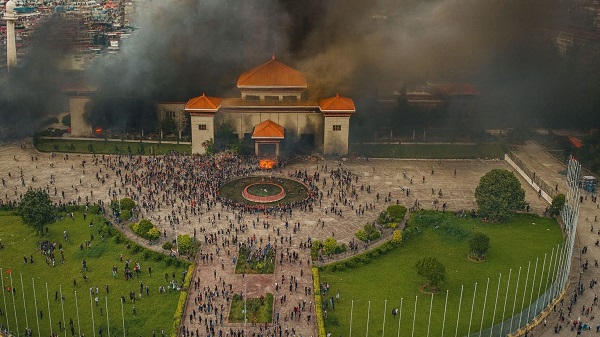
 International2 days ago
International2 days agoNepal Tried To Censor The Internet. Young People Set Parliament on Fire.
-

 Alberta1 day ago
Alberta1 day agoProvince urging post secondary students to apply for loans, grants, scholarships, bursaries and awards
-
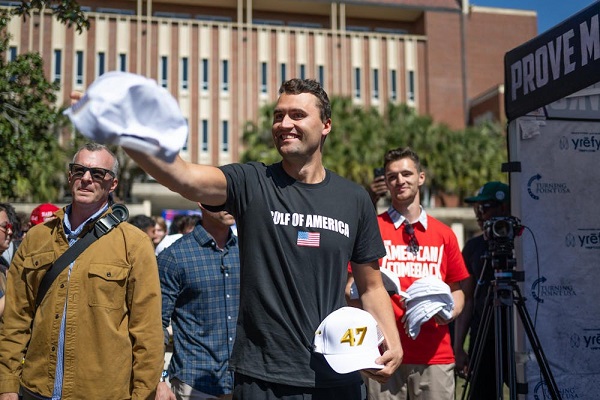
 Crime1 day ago
Crime1 day agoAlleged Killer Of Charlie Kirk Caught
-
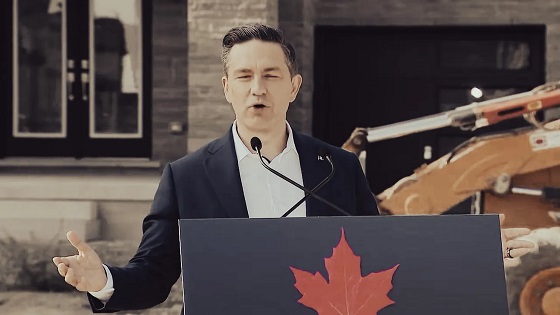
 Business1 day ago
Business1 day agoPoilievre: “Carney More Irresponsible Than Trudeau” as Housing, Jobs, and Energy Failures Mount
-
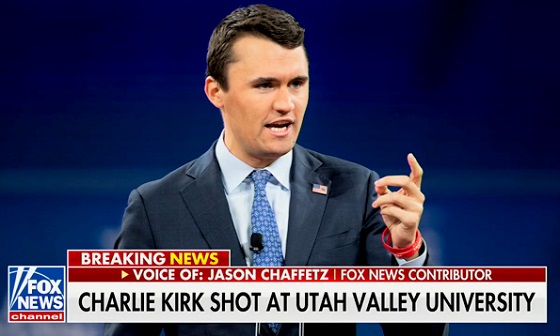
 Crime1 day ago
Crime1 day agoConservative speaker and celebrity Charlie Kirk shot during Q & A event at Utah Valley University
-
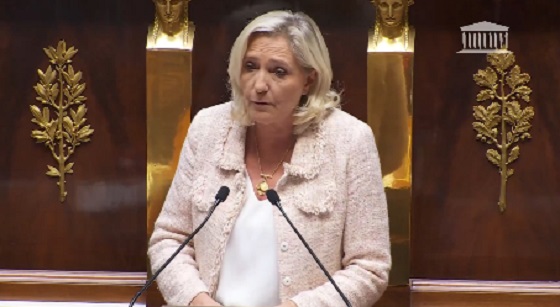
 International2 days ago
International2 days agoFrench government collapses after budget vote, Le Pen demands elections
-
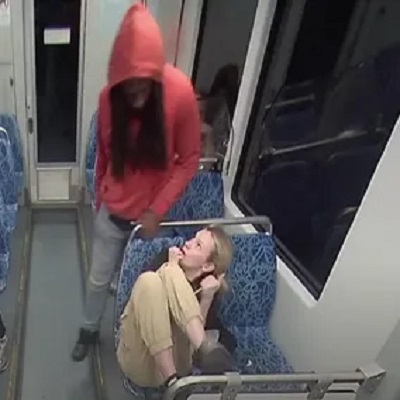
 Crime2 days ago
Crime2 days agoCharlotte train killer hit with federal murder charge, faces max penalty
-
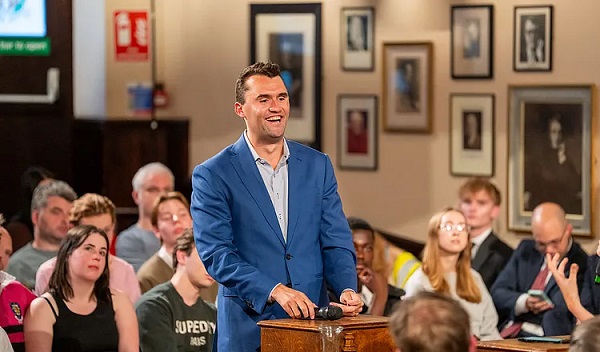
 Opinion1 day ago
Opinion1 day agoThe Charlie Kirk I Knew



